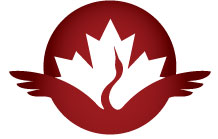OVERVIEW
A team of seven experts from five U.S.-based non-governmental organizations – Christian Friends of Korea, Global Resource Services, Mercy Corps, Samaritan’s Purse and World Vision – recently finished a needs assessment for food security in three provinces of the Democratic People’s Republic of Korea (DPRK). The team found evidence of looming food shortages and rising malnutrition.
The team traveled to the provinces of North Pyongan, South Pyongan and Chagang over a week period from February 8-15. The assessment was requested by the North Korean government.
FINDINGS
A combination of severe weather and rising food prices has exacerbated North Korea’s chronic food shortages.
- Summer rains: Heavy rains and flooding in summer 2010 reduced vegetable crops by more than 50 percent in some areas, and adversely impacted rice and corn crops, which are the staples of most North Korean diets. Post-harvest damage due to high humidity created more losses
- Winter freeze: North Korea is experiencing its coldest winter in 66 years, which has frozen up to 50 percent of spring wheat and barley crops, as well as potato seedlings. These spring crops were expected to soften the blow of crops lost due to summer rains.
- Rising food prices: North Korea had planned to purchase 325,000 metric tons of food on the global market this year, but rapidly rising food prices have caused them to reduce that estimate to 200,000 metric tons. Only a fraction of this amount has been purchased thus far.
- Food Shortages: Total agricultural production for 2010 is reported at 5.12 million metric tons, which is well below the national food need of 7.93 million metric tons for a population of 24 million people. North Korean authorities estimate that food stocks will be exhausted by mid-June.
- Insufficient Rations: The Public Distribution Systems has cut rations to an average 360-400 grams/day per adult. Current rations provide approximately 1250 calories. With expected shortfalls in the spring crops, it is unlikely the rations will remain even at these meager levels.
North Korean people – especially those dependent on the public distribution system for food – are suffering from malnutrition and related health consequences.
- Malnutrition and Resultant Illness: Local hospitals report an increase in malnutrition over the past six months, as well as an increase in related health problems such as low birth-weight babies, reduced ability of mothers to breastfeed, and increased recovery time from illness. These health problems will almost certainly worsen if the current food supply drops.
- Impact on Children: The team observed children suffering from acute malnutrition, as well as evidence of stunting, wasting, and hunger-induced listlessness.
- Struggling Households: Households in urban and mountainous areas – unlike farming households – rely on the Public Distribution System (PDS) for food. Many such families supplement the insufficient PDS rations by taking food gifts from friends who farm, consuming seed stock, and gathering wild grasses to add to meals. Up to 90 percent of income is spent on food.
- Hitting the Most Vulnerable Hardest: Children under the age of five, the elderly, pregnant and nursing women, the chronically ill and households with few income earners have been hardest hit by the food shortage, and are at great risk.
RECOMMENDATIONS
The five NGOs that participated in the assessment recommend that the DPRK be considered for emergency food assistance targeting children, the elderly, pregnant and lactating women, the chronically ill, and families without income sources that rely on the Public Distribution System. These populations would most benefit from supplementary rations of protein-rich foods. The NGOs also advise that therapeutic rations be provided for institutions that serve these populations, such as orphanages, and maternity and pediatric wards. Food assistance should be shipped to North Korea before the start of the “lean season,” which runs May to July, prior to the fall harvest.



10 March 2011 at 11:47
[…] Food Security Assessment by 5 US NGOs (cankor.ca) […]
11 March 2011 at 17:49
[…] Food Security Assessment by 5 US NGOs (cankor.ca) […]
15 March 2011 at 11:05
[…] with those caveats, information leaking out from the NGO assessment as well as initial press briefings from the FAO/WFP joint assessment team that just left the […]
17 March 2011 at 07:51
[…] noch verschärft durch Überschwemmungen im letzten Sommer und den ungewöhnlich scharfen Winter. Nach Einschätzungen eines Bewertungsteams von fünf NGOs haben sowohl die Fluten, als auch der Frost Schäden in den Ernten bewirkt, die in manchen Regionen […]
27 March 2011 at 12:52
[…] Food Security Assessment by 5 US NGOs (cankor.ca) […]
30 March 2011 at 11:38
[…] a dire need of food.[Aid Agencies Complete Needs Assessment in North Korea, February 28, 2011; and Food Security Assessment by 5 US NGOs, February 28, […]
11 May 2011 at 12:55
[…] system. Two recent food assessment missions by international and private humanitarian agencies (a rapid food security assessment by U.S. NGOs in February and another by the UN World Food Program in March) have documented the existence of […]
11 May 2011 at 21:25
[…] Two recent food assessment missions by international and private humanitarian agencies (a rapid food security assessment by U.S. NGOs in February and another by the UN World Food Program in March) have documented the […]
25 July 2011 at 23:15
[…] and Food Security Assessment by 5 US NGOs, February 28, 2011, https://vtncankor.wordpress.com/2011/02/28/food-security-assessment-by-5-us-ngos/. Post Published: 26 July 2011 Author: DPRK Found in section: Human […]